Getting Weird Feed Back From Mic When I Record
Sometimes, when you are in a meeting or giving a presentation, your microphone will start to buzz. The microphone buzzing is because of the wiring inside the mic picking up an electrical signal from somewhere else. It can be very frustrating and distracting for everyone in attendance.
There are many fixes for this problem, but they often require someone with electronics or specialized equipment to fix it. This article includes some of the many tips on how you can stop your microphone from buzzing.
It can be an embarrassing moment and it's certainly not something you want to have happened during your presentation. Especially if you're giving your speech in front of large crowds or broadcasting live on TV. But first, let's take a look at what causes these pesky buzzes in the first place.
A buzzing microphone is not only annoying and disruptive, but it can be a critical factor in ruining a sound recording. This problem can be caused by several reasons and issues within both the microphone and the device receiving the input. The good news is there are many ways to fix microphone buzzing fix problem before it becomes too much of an issue.
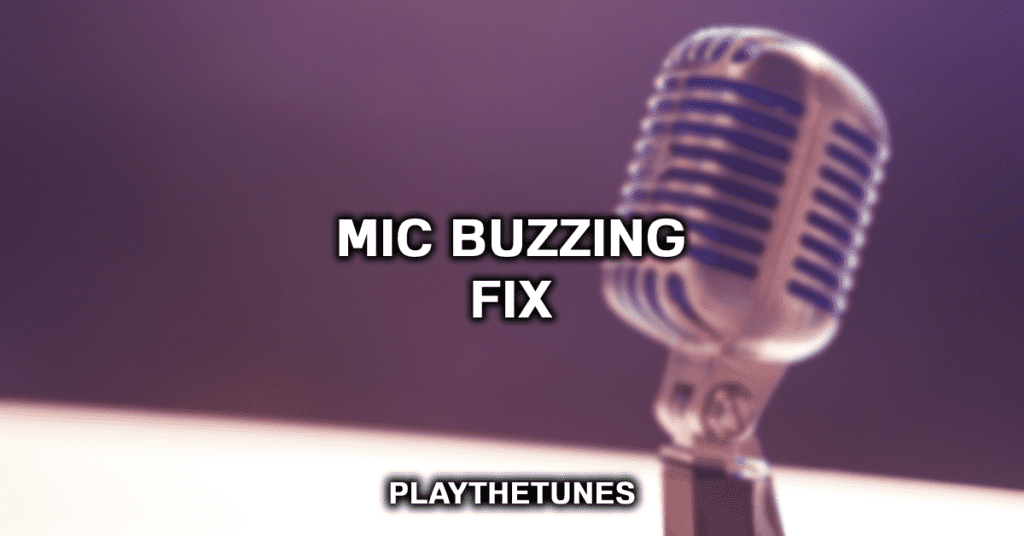
Why Does Your Mic Make a Buzzing Noise?
Here are some common issues and their respective fixes:
1). A loose wire connection
If you are using a microphone with an XLR connection, make sure the cable is securely fastened to both the device and the mic.
If you are using a USB microphone, make sure that it is plugged into your computer securely.
2). A broken wire within the cable
Replace your cable. If you have begun to notice static, buzzing, or any other sort of interference within your sound it is likely due to a broken wire.
3). A damaged input jack
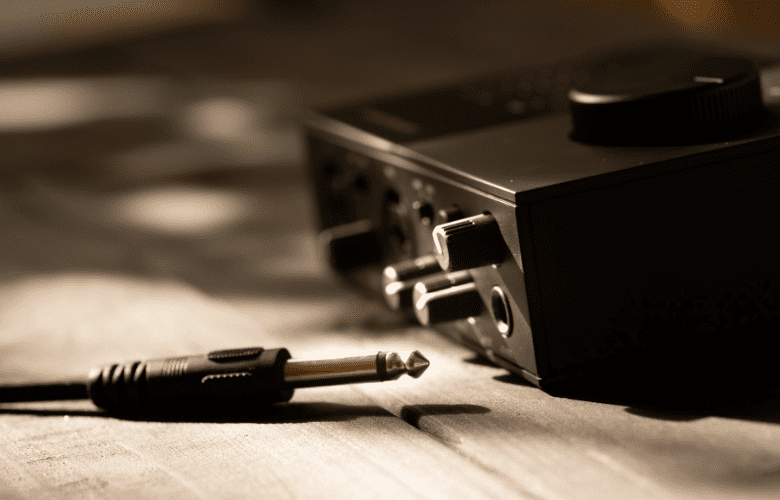
If you are using an XLR microphone, check the shape and condition of both the cable connection and the input port on your device. If either of these is damaged, replace them.
4). A dirty input
If you are using an XLR microphone, make sure that the connector is clean. Also, try cleaning the sound device you plug into, as dust or dirt can sometimes interfere with sound signals.
Expert Tip: For USB microphones, make sure that your computer is not dusty as this can also cause problems.
5). A faulty microphone
If none of the above work, it is possible that your microphone needs to be replaced. If you have tried all of the other solutions and have confirmed that they are not the problem, this might be a course to take.
6). Poor quality input jacks
Poor quality input jacks can also cause buzzing. If you are using an XLR microphone, make sure that your device is a high-quality one. and for USB microphones, try to use a computer with high-quality output jacks.
7). Electrical interference
If you have tried all of the above solutions and still have a problem, it could be due to electrical interference. Electrical interference can be found anywhere, but it is most common within the home and office.
If you suspect that there might be an issue with your electrical equipment or wiring, try moving to a different location and see if the problem persists.
8). Old speakers
If you are using external speakers, keep in mind that they will eventually wear out. If your speakers are old. they may have become damaged.
9). Bad internal wiring
Lastly, the internal wiring within your sound card or computer might be faulty or damaged beyond repair. This is one of the most challenging issues to fix as it will require either professional help or expensive replacement parts.
10). The sound card is not compatible with the device
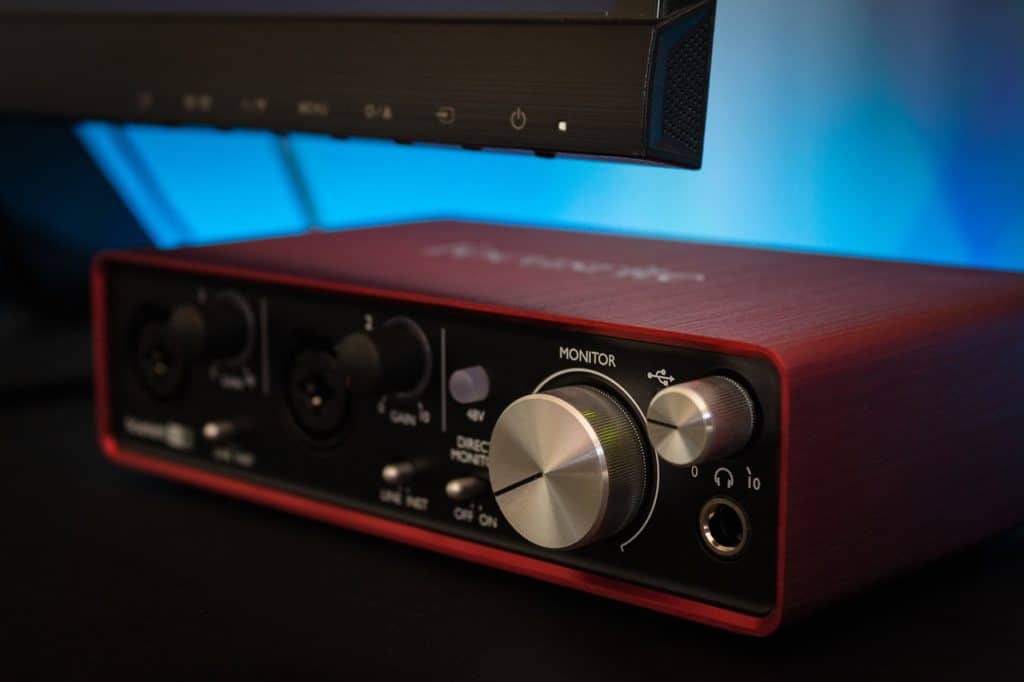
Lastly, it is possible that the sound cards in your device cannot support the microphone you are using. Try to find a new sound card or a different microphone. So without further ado. let's get into it!
I will go over seven different ways to fix a buzzing sound coming from your microphone. These methods range from the simplest and easiest ones to some more challenging and rarer fixes for a buzzing mic.
7 Ways on how to fix a buzzing mic
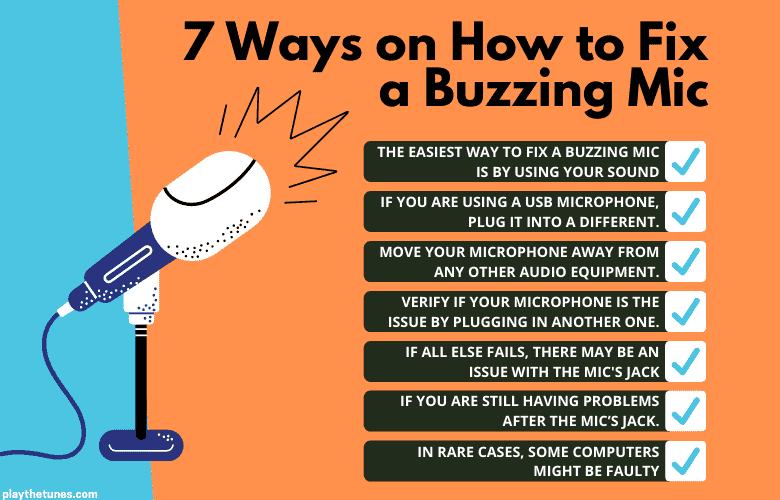
1. The easiest way to fix a buzzing mic is by using your sound.
If you are hearing feedback or get an annoying hum, you might want to consider tweaking the settings in your sound card's drivers. There should be some tab that allows you to adjust your gain or volume, or potentially something that enhances the noise-canceling capabilities of the microphone.
You will probably have to play around with different settings here to find out what works best for you. A graph usually represents the gain, so if you're looking at charts, make sure it's the one you are adjusting.
2. If you are using a USB microphone, plug it into a different.
USB port than before or try another one entirely. The USB port you are using may be faulty, causing the feedback.
3. Move your microphone away from any other audio equipment, including speakers, headphones, etc.
If what you are using your mic for is musically related make sure you are away from any equipment that can cause interference through soundwaves.
4. Verify if your microphone is the problem by plugging in another one.
Perhaps try borrowing a friend's mic or go to an electronics shop and purchase a cheap mic to test it out with your computer.
5. If all else fails, there may be an issue with the mic's jack that is causing it to pick up interference for some reason.
If you are brave enough, open up your computer and check if this is the case (usually, computers aren't designed for this). Otherwise, try looking at number 7 to see what your other options are.
6. If you are still having problems after the mic's jack.
It is possible that your audio device has some loose connection or something that needs to be rewired. If this is the case, try opening up your computer and taking a look at it yourself or have someone who knows what they're doing take a look at it.
7. In rare cases, some computers might be faulty
And there is an issue with the motherboard or hardware of your computer itself that can't be fixed by tweaking software settings. If this is the case, you're better off purchasing a new computer entirely. Even though it may not always reduce feedback or humming, you should always keep your microphone away from other audio equipment as much as you can.
Expert Tip: If possible, turn off any speakers, headphones, or anything else that emits sound waves when using your mic to prevent feedback. Also, make sure no objects are obstructing the path between your mouth and the mic itself. Yes. it is somewhat inconvenient but may be necessary.
If the issue is only caused when you are using headphones; you can solve this by plugging your microphone's headphones jack into your computer's main speakers so that all headphone-related sounds are gone.
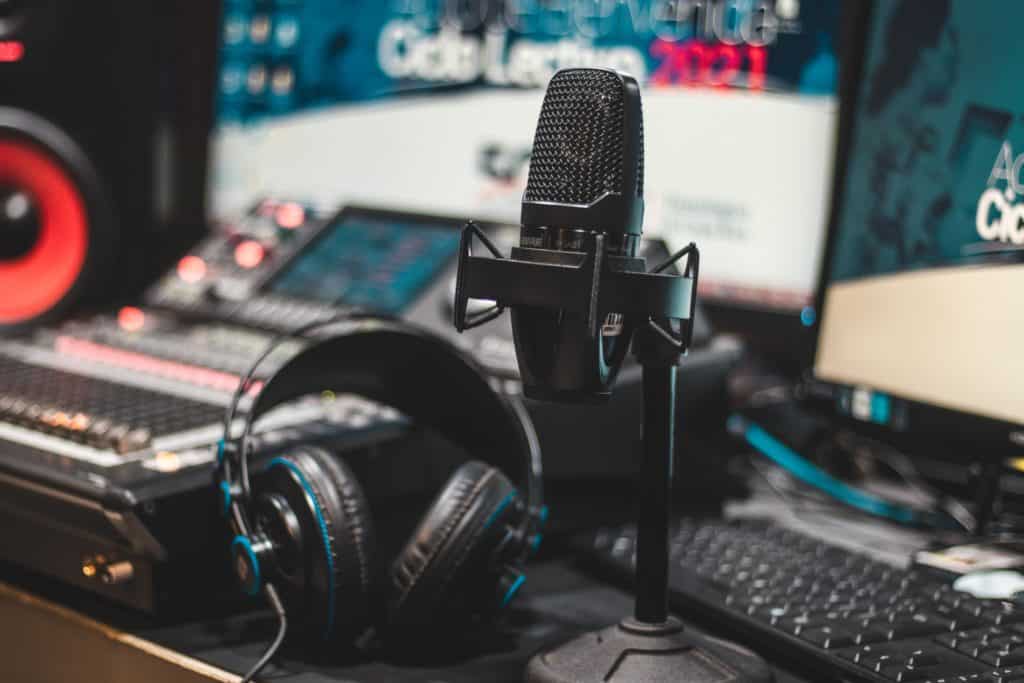
Suppose, for any reason, these seven methods do not work. In that case, you probably have a different problem with your sound card or mic that the Conclusion paragraph cannot fix: If you are using a microphone to record your voice, the buzzing sound is likely due to an electrical ground loop.
To fix this problem, make sure you have grounded all of your gear before connecting any microphones or speakers. These include computers, monitors, and power supplies for both computer equipment and audio devices.
The buzzing sound is likely due to an electrical ground loop with a microphone to record your voice. To fix this problem, make sure you have grounded all of your gear before connecting any microphones or speakers. This includes computers, monitors, and power supplies for both computer equipment and audio devices.
Expert Tip: You may also need to purchase a separate impedance transformer between these two pieces of equipment if they do not share the same ground voltage level.
Whether it's a small or big event, the microphones are usually set up well in advance. The sound tech or DJ should have them tested before you go on stage to ensure no microphone buzzing fix. The microphone is buzzing again. I can't make this noise.
It's an unfortunate reality that there are many things out of your control when it comes to dealing with poor sound quality, like loud microphones or built-in speakers not being able to help at all because they're too close by and don't produce a good bass response. But fortunately, you have the above tips for fixing the problem.
Make sure everything around, no matter if in use (speakers) or off(headphones)-is turned down low; Use earDluas/earmuffs. so onlv one thina irritates us more than our ears themselves, and lastly, turn off anv unnecessary electronics.
Simple Ways to Get Rid of Humming Noise from Your Microphone
In order to solve the problem of having humming noise from your microphone/headset. The most basic way is to draw forth power cable. If you are using laptop the best way is to draw forth the cable wire from the back. The expected result will be static and humming sound will be gone.
The explanation behind is the computer is not grounded. Majority of computer power cords has two prongs which means it does not have the third prong, which is considered the ground prong. It is better to make sure that your laptop is properly grounded so you do not have to draw forth the power cord whenever you want to use your microphone.
I hope this tips can help you with the problem you are experiencing when it comes to dealing with the problem from your microphone/headset. This might be very basic but at some point, the basics are neglected sometimes.
No more microphone screeching sound anymore!
Microphone screeching sounds are annoying to the ears. You do not want to hear it ever in your entire life. You might be asking "why does my microphone make a loud screeching sound?" To avoid making your microphone create screeching sounds, you might want to understand first how this particular sound is produced.
Mainly, the screeching sound in microphones is caused by the quality of the signal from the microphone amplifier to the speakers. When a sound coming from the main source is imbalanced and delivered to the speakers, the speakers will produce feedback to the microphone. That will be the time your microphone creates a screeching sound sending the signal again to the amplifier, then to the speaker.
It is a result of the series of loops which is created by the feedback of the device to the sound made impacted by the amount and quality of the signal. The manner of two devices to simultaneously receive signals together, and distorts the sound being released. This loop projects a screeching noise because of the harmonious flow of the sound and signal.
walterssoodia1977.blogspot.com
Source: https://playthetunes.com/mic-buzzing-fix/
0 Response to "Getting Weird Feed Back From Mic When I Record"
Post a Comment